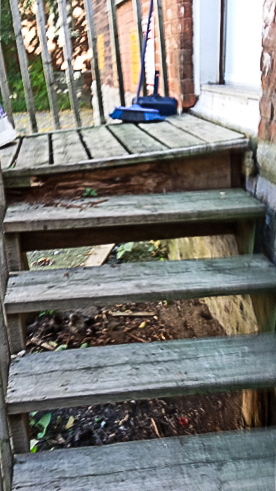
Marie-Elise Blais and Joanna Binch
Health rarely seems to enter the discussion when we talk about housing. But with the news filled with stories of closing emergency departments and overwhelmed nurses, physicians and allied health providers, we need to look closely at the issue of housing in the upcoming election.
Housing is healthcare. When we don’t have enough adequate and affordable housing, individuals struggle. Amongst other things, the healthcare system is directly affected.
One type of housing that highlights the relationship between housing and health is rooming houses. Rooming houses are single-room accommodations, regulated by the city, that share a kitchen, and/or bathroom.
This type of housing helps to give our community a lower-cost housing option for single people, keeping them off the streets. Yet, this housing often goes unnoticed, situated as it is above stores, in older homes, or fit in amongst some of our quieter streets of Centretown. Rooming houses play a critical role in preventing the loss of housing.
No one knows this more than Elizabeth, who lived with and cared for her aging mother, until she found herself needing to find accommodation for the first time in over 20 years, but could not afford an apartment on her limited income. She described a Centretown rooming house an answer to her prayers, but worried about how long she could remain because of the mould that was forming around some water damage in the ceiling.
On the one hand rooming houses help provide affordable housing, but on the other hand, when they are poorly maintained, they can add to the poor health of residents – leading to greater use of our emergency departments and ambulance calls.
A number of rooming house residents have identified stairs as a concern for their health as they aged; worried with advanced age if they would still be able to carry their groceries up the many stairs that are often part of rooming houses.
In the last several years, while the city has declared a housing emergency, we have continued to see a decline in the rooming house stock, and a loss of buildings that used to give an option to individuals who could rent these rooms within the income provided by social services.
We are planning an upcoming exhibition at City Hall of photos that rooming house residents have taken about how they see their health as residents in these facilities. We hope to raise awareness of rooming houses, and how we can support landlords who want to own and rent this important source of affordable housing, and how we can hold the City accountable to maintain the building standards of this housing to optimize the health of residents.
When you vote in this municipal election, keep in mind which candidates want to support rooming houses and their residents!
Marie-Elise Blais, RN is a Centretown resident. Joanna Binch, RN (EC) provides outreach services in Centretown.
